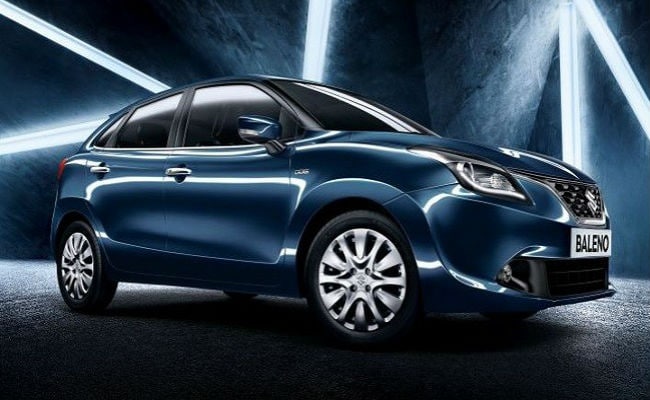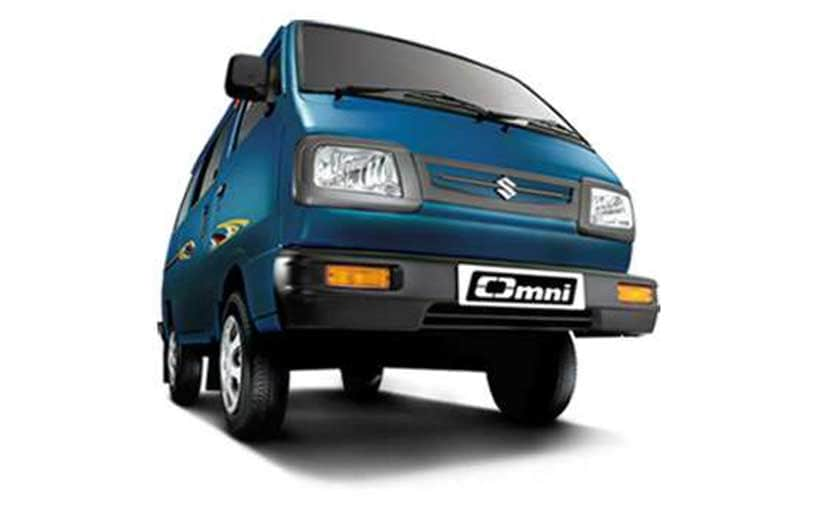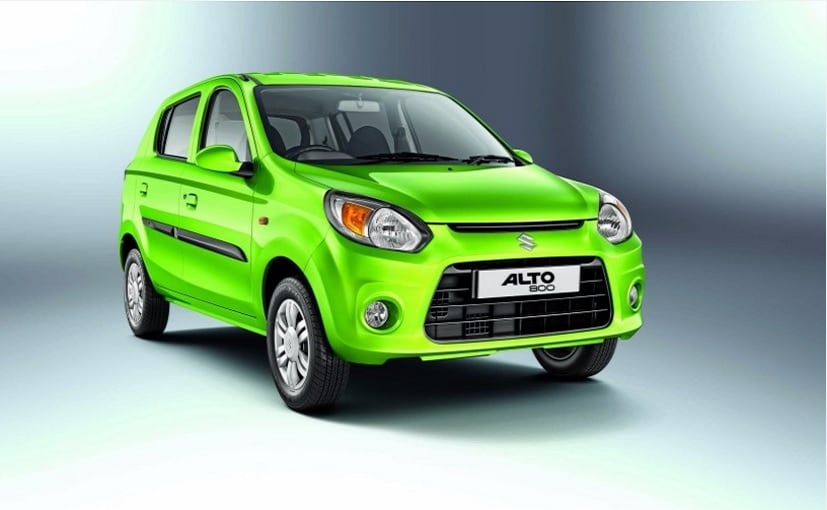Demonetisation Impacts Maruti Suzuki; Omni And Eeco Most Affected

Highlights
- Omni and Eeco among the most affected cars in terms of sales
- Maruti Suzuki is showing steady growth this fiscal
- The company will launch the Ignis and Baleno RS in 2017
The company recorded a 20 percent dip in sales in November 2016 but it expects a 7 per cent hike in December. The cumulative growth seen between October-November too stood at 7 per cent and this is majorly because of the festive season this year. Maruti Suzuki has had a good run with both the Baleno and the Brezza and the consumers have certainly taken a liking to both considering the cars are selling at an average of more than 8000 units per month. Even Maruti Suzuki dealers have only 10 to 12 day's worth of stock available in the last week of December compared to a month prior to November. In fact there's been a 10 per cent hike in the number of bookings which is indeed surprising.

R C Bhargava, Chairman, Maruti Suzuki, said, "Production at our facilities have not been affected because of demonetisation. There have been no cuts whatsoever in the production. But January will be critical in terms of sales for Maruti Suzuki and we aren't making any predictions for the next three months. We will wait assess the situation."
Private car sales then have managed to put a brave face at the end of this year but the used car sales suffered. Maruti Suzuki's used car arm True Value showed a decline in sales in November this year. In fact the sales of used cars will see a dip even in December when compared to the same month in 2015. The reason for this is that 80 per cent of new cars are financed while it's only 40 per cent of used cars that are financed because bank interest rates are higher for used cars.
It was not just the used car market that suffered, as the rural market too took a hit due to demonetisation. November sales in the rural markets declined by 7 per cent but improved in December by showing a sharp growth of 18 per cent. Maruti Suzuki will see an overall growth of 14 per cent in the rural market. The Brezza is a big hit in the rural markets as well as the percentage growth of bigger cars has gone up because of which the Alto has suffered. R C Bhargava said, "The sales of the Alto have declined because of the Baleno and the Brezza. Consumers are looking at buying big cars and the percentage growth of bigger cars like the Baleno and Brezza has affected sales of the Alto."
Commenting on the sales in rural areas post demonetisation Bhargava said that 50 to 60 per cent of the cars bought in the rural areas are financed. Compare that to the urban areas and it's 80 per cent. Even though the spread of digital payments will be slow in the rural areas; the key reasons being low number of income tax payers as also banking and connectivity, there has been slow growth and the next couple of months will tell us more.

The most impact of demonetisation has been on the sales of the Omni and Eeco, yet the company has a lot of plans for the next few years. As announced in 2015, Maruti Suzuki is looking to up the production and bring in new models to fuel their commitment of selling 20 lakh cars per annum by 2020. But the concentration on mild hybrid cars will be more rather than bringing out electric cars. According to Mr. Bhargava, Electric cars are not a priority and the reasons being infrastructure, charging points and payments for charging points.
When asked if cab aggregators like Ola and Uber are a threat to the industry, Bhargava said, "Uber and Ola are good for the industry. They're not a threat. In fact their replacement times are 3 to 5 times faster than individual cars." Maruti Suzuki in fact has driver training institutes where it plans to train 70000 drivers in the next three years. The syllabus covers technicalities related to the car as also driving and work etiquettes which basically helps groom a prospective cab driver.

Another important investment that Maruti Suzuki has made is in its testing centre at Rohtak. The test track is now complete and so is the crash test facility. Other facilities like the engine, dyno, chassis and suspension are being completed now. Mr. C V Raman, Executive Director, Engineering, Maruti Suzuki said, "Till date we have invested Rs. 1700 crore in this facility. We will be investing Rs. 2000 crore more by 2019 taking the total investment in this facility to just under Rs. 3800 crore."
The silver lining continues with the Gujarat plant starting production in February 2017. The Baleno will be manufactured in this facility and 10000 units of the Baleno will be pushed out of this facility by the end of February 2017. The next launch for the company is the Ignis followed by the Baleno RS and we'll keep you updated on the latest from this front.
Last Updated on December 23, 2016
Related Articles
Latest News
Popular Maruti Suzuki Models
 Maruti Suzuki FronxEx-Showroom Price₹ 7.52 - 13.13 Lakh
Maruti Suzuki FronxEx-Showroom Price₹ 7.52 - 13.13 Lakh Maruti Suzuki ErtigaEx-Showroom Price₹ 8.84 - 13.13 Lakh
Maruti Suzuki ErtigaEx-Showroom Price₹ 8.84 - 13.13 Lakh Maruti Suzuki EecoEx-Showroom Price₹ 5.44 - 6.7 Lakh
Maruti Suzuki EecoEx-Showroom Price₹ 5.44 - 6.7 Lakh Maruti Suzuki Alto K10Ex-Showroom Price₹ 4.23 - 6.21 Lakh
Maruti Suzuki Alto K10Ex-Showroom Price₹ 4.23 - 6.21 Lakh Maruti Suzuki SwiftEx-Showroom Price₹ 6.49 - 9.65 Lakh
Maruti Suzuki SwiftEx-Showroom Price₹ 6.49 - 9.65 Lakh Maruti Suzuki Wagon REx-Showroom Price₹ 5.65 - 7.36 Lakh
Maruti Suzuki Wagon REx-Showroom Price₹ 5.65 - 7.36 Lakh Maruti Suzuki InvictoEx-Showroom Price₹ 25.21 - 28.92 Lakh
Maruti Suzuki InvictoEx-Showroom Price₹ 25.21 - 28.92 Lakh Maruti Suzuki S-PressoEx-Showroom Price₹ 4.27 - 6.12 Lakh
Maruti Suzuki S-PressoEx-Showroom Price₹ 4.27 - 6.12 Lakh Maruti Suzuki IgnisEx-Showroom Price₹ 5.49 - 8.11 Lakh
Maruti Suzuki IgnisEx-Showroom Price₹ 5.49 - 8.11 Lakh Maruti Suzuki JimnyEx-Showroom Price₹ 12.74 - 14.95 Lakh
Maruti Suzuki JimnyEx-Showroom Price₹ 12.74 - 14.95 Lakh Maruti Suzuki XL6Ex-Showroom Price₹ 11.61 - 14.61 Lakh
Maruti Suzuki XL6Ex-Showroom Price₹ 11.61 - 14.61 Lakh Maruti Suzuki CelerioEx-Showroom Price₹ 5.64 - 7.37 Lakh
Maruti Suzuki CelerioEx-Showroom Price₹ 5.64 - 7.37 Lakh Maruti Suzuki BalenoEx-Showroom Price₹ 6.66 - 9.88 Lakh
Maruti Suzuki BalenoEx-Showroom Price₹ 6.66 - 9.88 Lakh Maruti Suzuki CiazEx-Showroom Price₹ 9.4 - 12.35 Lakh
Maruti Suzuki CiazEx-Showroom Price₹ 9.4 - 12.35 Lakh Maruti Suzuki Grand VitaraEx-Showroom Price₹ 11.42 - 20.52 Lakh
Maruti Suzuki Grand VitaraEx-Showroom Price₹ 11.42 - 20.52 Lakh Maruti Suzuki BrezzaEx-Showroom Price₹ 8.54 - 13.98 Lakh
Maruti Suzuki BrezzaEx-Showroom Price₹ 8.54 - 13.98 Lakh Maruti Suzuki 2025 New DzireEx-Showroom Price₹ 6.79 - 10.14 Lakh
Maruti Suzuki 2025 New DzireEx-Showroom Price₹ 6.79 - 10.14 Lakh













